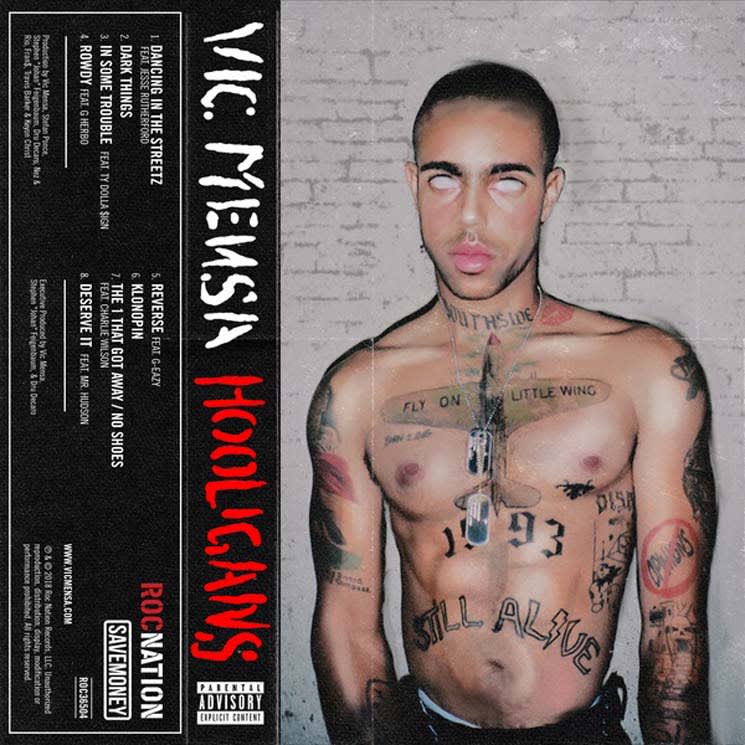Vic Mensa has had a tumultuous few years, from rightfully calling out people like XXXTentacion and Akademiks for crimes against rap culture, to 6ix9ine asking everyone in a room during an interview to name just one Mensa song. This is par for the course when one considers the controversial, "I'm not like others" vibe Mensa has presented or that his collective is called Savemoney.
But Vic shows he lets controversy roll of him like the water off a duck's back on "In Some Trouble" by including faux-voicemails calling him a pussy, a bitch and asking for co-signs.
These commentary tendencies come out, as expected, on the eight-song Hooligans EP. Packed into the short release are features by G Herbo, Mr Hudson, Ty Dolla Sign and Jesse Rutherford — in total, six songs feature another artist. This is the chief flaw of Mensa's EP — too much over too little time.
He opines on police brutality, gang violence, and his own reliance on drugs and alcohol — even melodramatically saying "this is absinthe, not Heineken" on "Dark Things." What's lacking is a connection between the environment and the individual that I think Mensa hopes to portray.
"Klonopin" is the best example of why this EP would be better served by self-examination in service of greater commentary purpose. It goes between popping molly, Adderall and Klonopin, cooling with the squad, and that this is him "talking to the court like Johnnie Cochran." He shows the drugs are dampers for the painful reverberations of his soul, which come from the guns and gangs of his environment growing up. Unfortunately, not all songs treat the subject this well, leaving the listener confused, likely, as to the purpose of this release.
(Roc Nation/Sony)But Vic shows he lets controversy roll of him like the water off a duck's back on "In Some Trouble" by including faux-voicemails calling him a pussy, a bitch and asking for co-signs.
These commentary tendencies come out, as expected, on the eight-song Hooligans EP. Packed into the short release are features by G Herbo, Mr Hudson, Ty Dolla Sign and Jesse Rutherford — in total, six songs feature another artist. This is the chief flaw of Mensa's EP — too much over too little time.
He opines on police brutality, gang violence, and his own reliance on drugs and alcohol — even melodramatically saying "this is absinthe, not Heineken" on "Dark Things." What's lacking is a connection between the environment and the individual that I think Mensa hopes to portray.
"Klonopin" is the best example of why this EP would be better served by self-examination in service of greater commentary purpose. It goes between popping molly, Adderall and Klonopin, cooling with the squad, and that this is him "talking to the court like Johnnie Cochran." He shows the drugs are dampers for the painful reverberations of his soul, which come from the guns and gangs of his environment growing up. Unfortunately, not all songs treat the subject this well, leaving the listener confused, likely, as to the purpose of this release.
